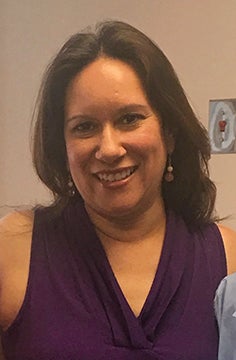Nalini Joseph: Preparing children for COVID-positive parent
Published 12:01 am Sunday, October 25, 2020
By Nalini Joseph
What happens when a parent is diagnosed with COVID-19?
How does life change for their child; how do daily routines change? How do mental and emotional mindsets shift when a parent is quarantined at home? Or when a parent is admitted into the hospital? How is a child impacted when their parent is not able to be their parent for a week or two or three?
Each family structure is different. Some children grow up in single-parent homes; some children have grandparents or other extended family that are a big part of their lives. Some children depend heavily on neighbors, family friends and their community for daily guidance and support.
Most children are resilient; however, most children are accustomed to having a constant and dependable parent to lean on. When a parent is suddenly shut out from their child and from the world, everything changes. Shopping, meal times, help with homework, bedtime routines, rides to and from activities — everything.
My guess is that you now know someone who has been deeply impacted by this horrible disease. Since March, every child has experienced some degree of anxiety, worry, fear or confusion. Children have been listening to adults talk about the pandemic for the last seven months. Most children have heard and seen a multitude of mixed messages about COVID-19 — about the disease, masks, going out in public, who is “safe” to be around, who is not.
As adults, we have had to navigate ourselves in an ever-changing world of information and messages about the pandemic. We have tried to balance safety with a good measure of normalcy for our children. However, most parents don’t have a concrete, well-thought-out plan for what family life will look like if a parent contracts the disease and is forced to quarantine or, worse yet, go to the hospital. To ease your child’s worries, here are a few tips from my friend Amy Eisele, a therapist and licensed clinical social worker who has worked with children and families for about fifty years:
• Be optimistic but be careful about how you reassure your child. You don’t know how long mom will be sick, whether she will have to go to the hospital and when she will recover.
• Connect your child with mom daily through virtual means if possible. Do this several times a day if you can.
• Remember that libraries are a great resource for children of all ages. Young children will find books in the children’s section about kids who have a sick parent or a sick sibling, about hospital stays and about doctors and nurses who help sick people get well. Older children can study biology books, learning how the immune system works and how our miraculous bodies stave off disease and infections every day. This gives your child a sense of control over a situation that may feel like it’s very much out of control.
• Tell your child that they are not alone in this. Many other children have parents in quarantine or the hospital.
• Tell positive stories about trips to the hospital: remember when mommy went to the hospital and brought that little bundle of love back home?
One of the best ways to prepare your child for the possibility of COVID-19 touching your family is to talk openly about what will change if someone in your family tests positive. Come up with a plan and remember everyone in the family, especially children, need to be part of the action plan.
Moreover, take all the precautions you can: wash your hands, wear your mask and limit close contact with people outside of your family. COVID-19 has impacted us all heavily. We have all learned to live with closed churches, new hours for shopping, school instruction on zoom and social distancing at schools that are open. Some of us want to leave this up to the federal government to solve. If the disease hits your home, the federal government isn’t going to show up at your home to take care of you, your family or your child; it’s you and your family that will take care of each other. Exercise the personal responsibility that comes along with the individual freedoms that we as Americans enjoy.
Nalini Joseph is a resident of Salisbury. She is the proud mother of 10-year honor-roll student, Rohan Joseph, who also serves his community as president of COVID Busters. Email her at nalinijones1@hotmail.com.



